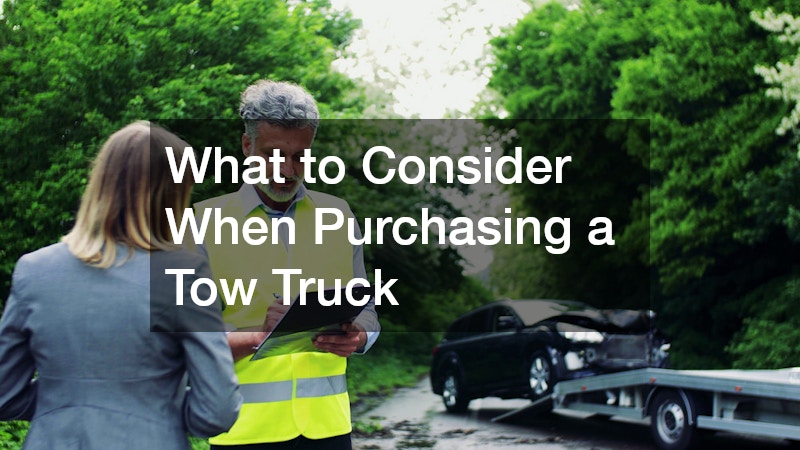
Purchasing a tow truck is a significant investment that involves careful consideration and planning. This article will guide you through the essential factors to take into account when buying a tow truck, ensuring that you make a well-informed decision.
When venturing into purchasing a tow truck, understanding the various types available is crucial. Different types of tow trucks, such as flatbed, hook and chain, wheel-lift, and integrated tow trucks, each serve specific towing needs.
Video Source
Flatbed tow trucks are often favored for their universal applicability and safety when transporting vehicles. In contrast, hook and chain tow trucks are more suited for older vehicles due to potential damage risks. Wheel-lift tow trucks provide a middle ground with enhanced capabilities over traditional hook-and-chain models. Integrated tow trucks combine the best of towing technologies into a single unit, suitable for heavy-duty operations.
Before settling on a tow truck type, assess your specific towing needs. Consider the types of vehicles you plan to tow; for example, luxury cars may require the safety of a flatbed, while heavier vehicles might necessitate an integrated model. Frequency of use is another vital factor; more frequent usage might justify investing in a more robust, versatile tow truck. Additionally, consider whether you will need to navigate tight urban environments or primarily operate on highways. Aligning the truck's capabilities with your business objectives ensures you select a model optimized for your operational demands. This assessment will ultimately support the truck's cost-effectiveness and longevity in your fleet.
Capacity and towing power are paramount features, dictating a tow truck's ability to handle varying weights and sizes. A truck with inadequate capacity may not only struggle but also pose safety risks during towing operations. Understanding the Gross Vehicle Weight Rating (GVWR) is essential, as it indicates the maximum safe weight of the truck when loaded. The towing and recovery industry's standard emphasizes selecting a tow truck that exceeds your typical load requirements. Larger trucks tend to offer better power and stability, making them more suited for demanding tasks. However, overly large capacities may increase operational costs without corresponding usage benefits.
The towing industry continues to innovate, integrating new safety features and technology to enhance operations. Modern tow trucks often come equipped with advanced braking systems, collision avoidance, and camera systems for increased safety. These enhancements can significantly lower the risk of accidents, ensuring not only your investment's safety but also that of your operators and towed vehicles. It's beneficial to prioritize trucks with additional features like GPS tracking and automated lift systems for efficiency. The integration of such technologies into your tow trucks can streamline operations and often results in lower insurance premiums and enhanced client trust. Staying abreast of technological advancements can provide a competitive edge in the towing business.
Evaluating the initial purchase cost against the tow truck's long-term investment value is crucial. While a cheaper upfront cost may seem appealing, it might result in higher expenses due to frequent repairs and inefficiencies. Investing in a higher-quality model with more advanced features can ensure profitability in the long run, especially if it enhances operational capabilities and longevity. Consider the potential return on investment through community contracts or high-profile jobs. Balancing affordability with quality and performance means securing a tow truck that meets immediate needs while providing growth potential. Strategic planning involves understanding both current financial capacities and future revenue possibilities.
Beyond the initial purchase, ongoing maintenance and operational expenses considerably impact your budget. Regular repairs, fuel costs, and parts replacement can accumulate, especially if your fleet includes older models. Projecting these costs by researching average tow truck operation expenses in your region is a proactive approach. Operating newer, more efficient models often leads to reduced costs over time, despite higher initial investments. Budgeting for unforeseen expenses can protect your business from financial strain. Ensuring a portion of your budget is allocated for ongoing expenses sustains your fleet's operational readiness and reliability.
When purchasing a tow truck, it's crucial to evaluate the right type, necessary features, and the overall cost to make a decision that is both financially viable and suited to your business objectives. By considering these factors, you can secure a tow truck that will serve your needs effectively and efficiently.
